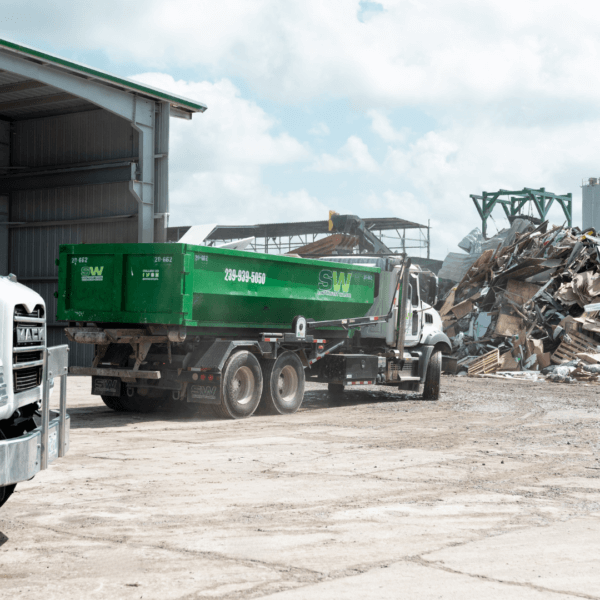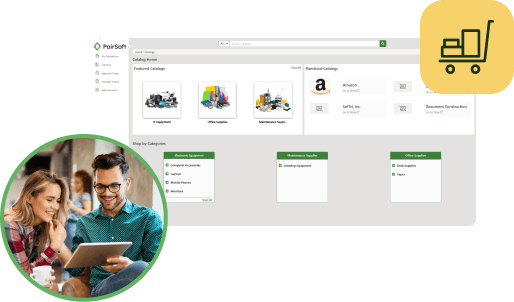
Janet Martin
Janet joined the PairSoft team upon its merger with Paramount Workplace, where she was also an integral part of the sales team for years. Janet resides in Michigan with her family.
View all posts by Janet MartinJanet Martin

2025 | Featuring insights on:
Properly managed supply chain operations and control over spend remain critical to a company’s ability to deliver and satisfy its customer base. Few industries reflect this reality as strongly as the hospitality sector. Millions of guests are served by hospitality companies each year, and the amount of goods and services procured to sustain operations is enormous. From toiletries and linens to food, beverages, and furnishings, procurement touches every aspect of the guest experience. When procurement processes are mismanaged, the result is immediate: dissatisfied customers, increased costs, and lost revenue.
Hospitality companies also face unique challenges in spend management. Many operate with remote, disparate locations and multiple back-office departments, making it difficult to gain visibility across purchasing activity. Rogue spend and compliance lapses are common issues. Competitive pressures from alternative hospitality services like Airbnb and rising customer expectations further intensify the need to control costs while maintaining service quality.
To meet these demands, many organizations are shifting toward integrated procure-to-pay (P2P) platforms. These solutions centralize requisitioning, supplier management, invoicing, and payments into a single system. They provide the visibility and control needed to reduce rogue spend, automate manual workflows, and offset financial challenges from new competition. The following report highlights recent procurement trends and demonstrates how eProcurement can transform hospitality operations.
Recent research from Hospitality Financial and Technology Professionals (HFTP) and industry leaders such as FutureLog shows that hospitality procurement has entered a new phase in 2025. Compared to just a few years ago, procurement is no longer viewed as a back-office function. It is now recognized as a driver of innovation, resilience, and sustainable growth.
Key trends include:
These findings confirm that hospitality organizations are embracing modern procurement technology faster than many other industries, largely due to their high volume of indirect goods and the frequency of recurring orders. For example, a hotel chain managing dozens of locations must replenish guestroom consumables daily, while also coordinating large-scale purchases of furniture, equipment, and food. Without advanced procurement technology, visibility and control quickly become unmanageable.
Modern eProcurement platforms tailored for hospitality offer web-based, real-time purchasing automation to manage complex supply chains and dispersed operations. Functionality typically includes:
These capabilities help organizations centralize operations, enforce compliance, and create a stronger foundation for financial decision-making.
Centralization By consolidating all spend into a single system, eProcurement enables real-time visibility into budgets, suppliers, and catalogs. This not only improves control but also facilitates integration with existing ERPs through APIs, ensuring consistency across multiple locations and systems.
Comprehensive Control Hospitality organizations can enforce approval workflows, role-based access, and category-specific restrictions. These controls enhance security, prevent unauthorized spending, and ensure compliance with financial policies across all properties.
Flexible Supplier Catalogs Supplier-maintained catalogs, including punch-out options, give users access to up-to-date product information and negotiated pricing. This improves compliance, accuracy, and efficiency in the requisition process while reducing maverick spend.
Budget Management Support eProcurement platforms provide real-time budget impact analysis before purchases are made, ensuring organizations stay within financial targets. Requests that exceed thresholds can be automatically routed for additional approvals.
Supplier Control Self-service supplier portals support collaboration, allowing vendors to accept POs, send shipping notices, update information, and resolve disputes digitally. This reduces communication delays and improves supplier relationships.
Auditing and Analytics Built-in reporting tools and audit trails provide both real-time and historical visibility. Organizations can analyze spend patterns, monitor compliance, and support financial forecasting with greater precision.
As hospitality companies face increasing pressure from changing consumer expectations, rising costs, and competitive alternatives, procurement is evolving into a strategic enabler. By replacing fragmented, manual processes with integrated, automated P2P solutions, organizations can gain visibility, reduce inefficiencies, and create long-term value.
With procurement automation, the hospitality industry is no longer reacting to market pressures. It is proactively driving efficiency, innovation, and guest satisfaction.
Talk to an expert today to uncover how your team’s procurement stacks up against the top performers in your sector.



Many organizations start with manual receipt handling, fragmented card feeds and slow AP processes. Implement AI agents to auto-capture receipts, route approvals, enable punch-out buys and post to the ERP.
Result: faster batching, fewer errors and cost savings. “This saves us hours every month.”
Many organizations face slow, paper-heavy AP and fragmented procurement that waste time and inflate costs. AI Agents can automate approvals, PO matching and record sync to improve speed, accuracy and control. Client quote: “It freed up hours and made our process reliable.”
Operational drag and rising costs slow growth: teams waste time on manual tasks, misaligned priorities and opaque processes. AI Agents help automate routine work and coordinate actions across teams. “We’ve lost time to repeats and handoffs,” says a typical client.
Companies struggle with manual procurement, fragmented approvals, and costly integrations that slow growth and obscure spend. Our AI Agents streamline requisitions, POs, and invoice matching to cut manual work and improve visibility. “We were wasting time and missing insights,” says a client.

Many teams start with fragmented PO/AP systems, manual matching and delayed financial reporting. Deploying AI agents to automate PO checks, real-time encumbrance tracking and invoice matching reduces processing time and errors, delivering live budgets and faster closes. “Finally, we can see current balances and approve instantly.”
Many companies juggle growing invoice volumes and legacy systems. They struggle with manual processes, compliance gaps and limited headcount. Our AI Agents automate integrations, enforce rules and surface exceptions. The typical outcome: faster closes and measurable ROI. “We stopped chasing invoices.”